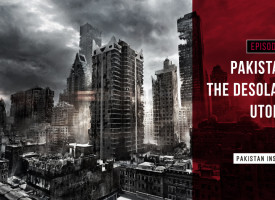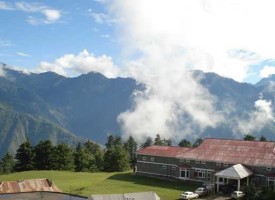Before I get into the contents of this article in detail, a few things need to be clarified beforehand. This article specifically addresses Muslims in Pakistan who belong to the Sunni and Shia schools of thought. There are several sub-sects in these respective schools of thought; for example, Barelvis, Deobandis, Salafis/Wahhabis etc come under the umbrella of ‘Sunni’ whereas Ithna Ashari (Twelvers), Zaidis, Ismailis, etc come under the umbrella of ‘Shia’. Collectively, we understand this well that whoever has belief in Shahadat is a Muslim i.e. there is no god but Allah and Muhammad (peace and blessings be upon him) is His (Final) Messenger.
The need to address the issues below became even more necessary after it was noticed on the Internet in general and social media networks in particulars how Muslims from these schools of thought engage in a war of words within other sects and even among sub-sects in their own school of thought. For example, Barelvis fighting with Deobandis and vice versa, Salafis arguing with Ithna Asharis and so on.
The unrestricted access to the Internet transformed the world into a global village but, as expected, several miscreants seized the opportunities therein to make a large part of it a ‘digital hell’. Curses, abuse and irrational tit-for-tat arguments are hurled against the other on a variety of issues which has generated an atmosphere of severe hate, intolerance, bigotry and disharmony.
National Level
On the domestic front, Sunnis and Shias engage in petty arguments day in and day out. There are thousands of Facebook pages, Twitter handles, blogs and websites in which one school of thought rigorously tries to degrade and shame the other. Their posts are filled with poisonous, misleading content which is the result of their narrow-minded, ideological bias complimented with disinformation and propaganda.
When there are calls for implementing Deen (Islam as the politico-socio-economic-legal system), the first question followers of both schools of thought ask is, “Whose Islam?” This is a disappointing question reflecting the state of mind prevailing among Muslims in Pakistan. We fail to look into the past and examine the lives of Pakistan’s forefathers who belonged to various sects. Quaid-e-Azam Muhammad Ali Jinnah, who implemented and fulfilled Allama Dr. Muhammad Iqbal’s vision hailed from the Khoja Ismaili denomination of Shia Islam by birth and later adhered firmly to the Sunni school of thought. The founder of All India Muslim League was Sir Sultan Muhammed Shah (Aga Khan III), Imam of the Shia Ismaili Muslims whose selfless services to the cause of Pakistan are well known.
In his book ‘The Pakistan Paradox: Instability and Resilience’, French political scientist Christophe Jaffrelot, who specializes in South Asia, touches upon the history of sectarianism in the Indian Subcontinent in an interesting light:
“While Sunnis have always dominated South Asian Islam, Shias too have traditionally played an important role, with the two main branches of the Muslim religion long maintaining peaceful relations. The first Mughal Emperor gave the following advice to his son in his will: ‘Overlook the difference between the Sunnis and the Shias, otherwise the decrepitude of Islam would inevitably follow.’ Humayun went even further: after fleeing to Iran once defeated by the Afghan invader Sher Shah Suri, he became a Shia. But, ‘Mughal tolerance of the Shia became more pronounced under Emperor Jalaluddin Akbar (1542-1605)’, whose son, Jehangir married ‘Nur Jahan, an Iranian lady who actually spread the Shia custom among the masses…’
Even under Aurangzeb – a Mughal Emperor known for his militant Sunnism – almost one third of the aristocracy and more than half of its senior-most functionaries were nevertheless Shias. At the societal level, popular Islam scarcely differentiated between Shiism and Sunnism. The Barelwis of Punjab and Sindh, for instance, used to take part in Moharram ceremonies (but did not practice flagellation and other extreme ritual procedures). One of the most prestigious Sufi orders of South Asia, the Chistis, did not at all discriminate against the Shias.
During the British Raj, the only place where relations between Shias and Sunnis were strained was in Lucknow, the capital of the former kingdom of Awadh. Tensions developed there in the 19th century due to competition facing the former Shia ruling dynasty and the aristocracy that remained faithful to it from a rising Sunni bourgeoisie. In 1906, the Sunnis took to criticizing Shia rituals, saying that they were heterodox innovations, and began to practice Madhe Sahaba (a procession conducted on the occasion of the Prophet’s birthday) as a show of strength. Rioting ensued, such that the Shias created the Shia Conference, an organization that was renamed Shia Political Conference in 1909.
Despite its new name, this institution did not articulate specific political demands, except a separate count of the Shias in the census. (This is how the figure of 4%, probably much lower than the actual percentage, was established by the Census Office after it acceded to the Shia demand). In the mid-1930s, the Shia Political Conference merged into the Congress Party. Without there being an apparent causal relationship, that was precisely when a new outbreak of rioting occurred, continuing into the early 1940s. But the division between Shias and Sunnis remained a local issue and never affected the cohesion of the Muslim League.” (emphasis mine)
It is a fascinating observation by Jaffrelot that despite sectarian differences, cohesion in All India Muslim League’s ranks was not affected. He quotes another French political scholar Mariam Abou Zahab who remarked that, “it was even improper to ask someone whether he belonged to one group or the other” (Ref: ‘Entretien avec Mariam Abou Zahab: L’Islamisme combattant au Pakistan: un état des lieux’, Hérodote 139, 2010, p. 90)
What was it that inspired the Founders of Pakistan more passionately than the differences in their individual sect’s teachings? What was the driving force which held them together under one common flag? That force was Islam. As discussed in one of my previous articles, Islam is basically belief in five pillars which are common among all sects. Matters of jurisprudence in which each school of thought’s followers disagree or hold reservations should at best be left untouched on matters of collective, national interest. Islam has emphasized on uniting under common beliefs, at least for the sake of harmonious, peaceful co-existence.
Commenting on the rise of sectarianism in Pakistan, Jaffrelot noted that,
“the rise of sectarianism since the 1970s has introduced a vertical split in Pakistani society that probably represents one of the biggest challenges to national cohesion today”.
This internal security threat is directly linked to foreign/external influence, as I will explain in detail below.
International Level
The relatively new concept of “geosectarianism” propounded by renowned Canadian analyst Kamran Bokhari makes for an interesting study. At present, the Muslim geopolitical order is bipolar with Saudi Arabia (and somewhat Turkey) leading the Sunni bloc and Iran leading the Shia bloc. Both these countries are ideological epicentres of Sunni and Shia Islam. Although there are minor differences between Barelvi/Deobandi/Sufis and Salafis-Wahhabis, there is an undisputed importance given to Saudi Arabia’s well-being since it houses the holiest sites for Muslims i.e. Makkah and Madinah. On the other hand, Qum city in Iran is given somewhat equal holy status by Shia Muslims who consider it the seat of their learning in matters of core jurisprudence.
It is this active engagement in sectarian-influenced geopolitics (a.k.a. geosectarianism) which directly influences national cohesion in Pakistan. Thousands of madrassas and imam bargahs in Pakistan receive billions in funding per annum from Arab Gulf states and Iran, respectively. Whoever pays for their day-to-day affairs certainly has a hold on their activities. This is why we can see prominent Sunni groups holding processions in favor of Saudi Arabia’s war on Yemen and, similarly, we see prominent Shia groups rallying in support of Hassan Nasrallah’s Hezbollah.
It is very unfortunate that leaders of both these camps are spilling each other’s blood (Muslims killing Muslims) and encouraging, rather, inciting their blind adherents to do the same. An important point to mention here is the objection by Barelvi and Sufi followers who vocally distance themselves from Saudi Arabia’s version of Islam i.e. Salafism/Wahhabism. However, it cannot be denied that ultimately, whether they like it or not, all of them come under the umbrella of Sunni Islam.
Similarly, in Shia ranks, Ismaili Muslims are generally apolitical as in they do not have any hegemonic geopolitical ambitions, neither do any of its followers have a politically-active role in Pakistan. They advocate pluralism and the right to exercise individual/communal beliefs with complete liberty. This approach is in stark contrast to their Ithna Ashari counterparts. It would not be wrong to assert that Ithan Asharis are the ‘Wahhabi’ version of Shias.
Who or what is a Pakistani?
With specific regards to Muslims in the country, a ‘Pakistani’ is basically a citizen of Pakistan who gives prime importance to the larger interests of the Muslim-majority state instead of their sect’s geopolitical ambitions. It is necessary to elaborate on this definition with some pointers:
• When the Taliban regime was overturned with force by the US and allied invasion of Afghanistan, Shias in Pakistan supported the establishment of Northern Alliance’s government because it consisted of Tajiks who were mostly non-Deobandi and hence not hostile to Iran. The regime in Tehran has been supporting Northern Alliance morally and politically to counter what it perceives is the threat of radical Deobandi-ism (Iran believes Hanafi Deobandi Taliban operate jointly with Wahhabi Al Qaeda militants, which is true to a little extent). Sunnis, on the other hand, to this day have a soft corner for the Taliban who they consider as the legitimate rulers of Afghanistan.
• When the Saudi regime decided to attack Houthi targets in Yemen, Sunnis largely supported this move or at least did not resist it owing to reverence for the holy sites (a religious compulsion at best); most were genuinely concerned about what they perceived were Shia Iran’s hegemonic ambitions to occupy Yemen and turn it into another satellite state like Syria. On the other hand, Pakistani Shias were and still are vocally opposing what they call ‘Sunni/Wahhabi aggression’ on Yemen. They have been holding rallies in support of the Zaidi sub-sect of Shias who are more similar to Sunnis.
• Sunnis in Pakistan have a soft corner for anti-regime forces in Syria whereas Shias are vociferously supportive for Bashar al-Assad’s regime; ironic though, because Assad is from a lesser known Shia sub-sect (Alawites), but because he has a good understanding with the regime in Tehran, Ithna Asharis consider him one of their own.
To summarize the above, Sunnis in Pakistan support or at least have a soft corner to the concept of an expanding Arab-cum-Turkish ‘Sunni bloc’ whereas their Shia counterparts have the same approach towards Iran’s ‘Shia bloc’. Although such tendencies are not exclusive to Sunnis and Shias in Pakistan alone, it is important to highlight why Pakistan’s Muslims (Sunnis, Shias, etc) should stay aloof from such dangerous, blind following:
• Unlike Saudi Arabia and Iran, Pakistan was established in the name of Islam with more than 600,000 men, women, children and elders sacrificing their lives for the sake of Allah and His Final Prophet (these included Sunnis, Shias and their further denominations). A considerable amount of non-Muslims also rendered immeasurable sacrifices for Pakistan but as mentioned above, this article has been written specifically for Pakistan’s Muslim audiences.
• The Founders of Pakistan kept their petty sectarian differences aside and promoted the transcendental messages of Unity, Faith and Discipline from The Quran to advance the concept of nationhood, free from the shackles of narrow-minded ideologies.
• Allah and His Final Prophet (peace and blessings be upon him) were given importance over the clergy who had and continue to harbor vested political and financial interests.
• Pakistan’s forefathers wanted to create a separate homeland for Muslims (not exclusively Sunnis or Shias) who could practice their religion without any hurdles/hindrances. Today, Muslims of one sect frown on seeing Muslims of another sect practicing their rituals, customs and traditions.
Although Islam was to be the basis of Pakistan’s creation, Quaid-e-Azam Muhammad Ali Jinnah had warned of the dangers of theocracy during a message broadcast to the people of America in February 1948:
“I do not know what the ultimate shape of this constitution is going to be, but I am sure that it will be of a democratic type, embodying the essential principles of Islam. Today, they are as applicable in actual life as they were 1300 years ago. Islam and its idealism have taught us democracy. It has taught equality of men, justice and fairly play to everybody. We are the inheritors of these glorious traditions and are fully alive to our responsibilities and obligations as framers of the future constitution of Pakistan. In any case Pakistan is not going to be a theocratic State — to be ruled by priests with a divine mission. We have many non- Muslims — Hindus, Christians, and Parsis — but they are all Pakistanis. They will enjoy the same rights and privileges as any other citizens and will play their rightful part in the affairs of Pakistan.” (emphasis mine)
Professor Sharif al Mujahid, a distinguished National Professor of the Higher Education Commission of Pakistan had this to say:
“While he (Jinnah) laid a good deal of stress on Islamic ideals and principles, he ruled out theocracy, saying ‘Pakistan is not a theocracy or anything like it. Islam demands from us the tolerance of other creeds.’ Technically speaking, theocracy means a government ‘by ordained priests, who wield authority as being specially appointed by those who claim to derive their rights from their sacerdotal position.’ Unlike Catholicism, there is no established church in Islam; (in fact, it decries such a church). Moreover, since Islam admits of no priestcraft, since it discountenances a sacerdotal class as the bearer of an infallible authority, and since it concedes the right of ijtihad to ‘men of common sense’, the concept of theocracy is absolutely foreign to Islam. Hence, during the debate on the Objectives Resolution (March 1947), Mian Iftikharuddin refuted the Congress members fears about the sovereignty clause, saying that ‘the wording of the Preamble does not in any way make the Objectives Resolution any the more theocratic, any the more religious than the Resolution or statement of fundamental principles of some of the modern countries of the world’ (10 March 1949). Thus neither Iqbal, nor Jinnah, nor any of the independence leaders (including Maulana Shabbir Ahmad Usmani) stood for a theocratic state.”
It is thus, clear, that Sunni/Shia priests were not supposed to rule the state according to their respective sectarian doctrines. Pakistan was to be ruled by principles of Islam interpreted through ijtihad in modern times, as Professor Mujahid puts it, through “men of common sense”. As the saying goes, common sense is not very common these days and it is certainly not that easy to find among the majority of clergymen in both schools of thought.
Pakistaniyat (Pakistani-ism) for a Muslim in the country is equal to non-sectarian attitudes towards the state and its affairs. Pakistanis of true letter and spirit will not object to regional alignments with, say, Saudi Arabia or Iran at any given period in time because they will keep realpolitik in view and support the state’s ultimate well-being (political, economic and security); when they will view developments strictly through the ‘Pakistan’ lens, they will wrap up their narrow, individual geosectarian attitudes and put them on the backburner.
A Sunni who will not object to alliance with Iran if it is in national interest is a true Pakistani. Similarly, a Shia who will not object to alliance with Saudi Arabia if it is in national interest is a true Pakistani. Not according prime importance to Pakistan’s ultimate interests does not make one a proper citizen of the state. This is not meant to degrade such people but a general rule elsewhere too: An American who will give more importance to, say, what Cuba or Russia does, is not a true American because citizens of the state should give preference to their national interests.
There are citizens around the world who are non-conformists and somewhat liberal; they claim they are not blind patriots or ‘jingoists’ and will not necessarily condone what their country does, especially if it is against basic human rights. Their principled position on such affairs cannot be questioned and should not be victimized. However, in Pakistan, Shias who oppose Saudi aggression or Sunnis who support anti-regime activities in Syria sometimes claim they are simply voicing concern for human rights and exhibiting anti-war activism. These prove to be empty claims and diversions because they are not seen advocating the same against their sect’s wrongdoings. This is where the fallacy in their somewhat cleverly-disguised arguments is exposed. It is a sign of sheer hypocrisy.
Conclusion
The Objectives Resolution embodies pristine teachings of Islam as a Deen. If it is given constitutional supremacy, it will automatically facilitate the Rise of Pakistan. The clergy in Pakistan has kept both Sunni and Shia camps engaged in sectarian strife and war at the behest of Saudi Arabia and Iran. I recall reading a damning report in The News dated January 9, 2015 (original link removed, cached version can be accessed here) which revealed how two rival sectarian terrorist groups pardoned each other’s convicted inmates who were going to be hanged. This detailed report showed the nefarious, dirty faces of both sects’ (Sunni and Shia) militant followers.
If we want to contribute to the nation as true citizens, we must be Pakistanis first and Sunnis/Shias later. Pakistan was envisioned as a model state for Muslims around the world. We cannot raise our hands up and absolve ourselves of this pending responsibility.
image via: bigstockphoto.com







Thanx, a harmonius appeal
You’re welcome!